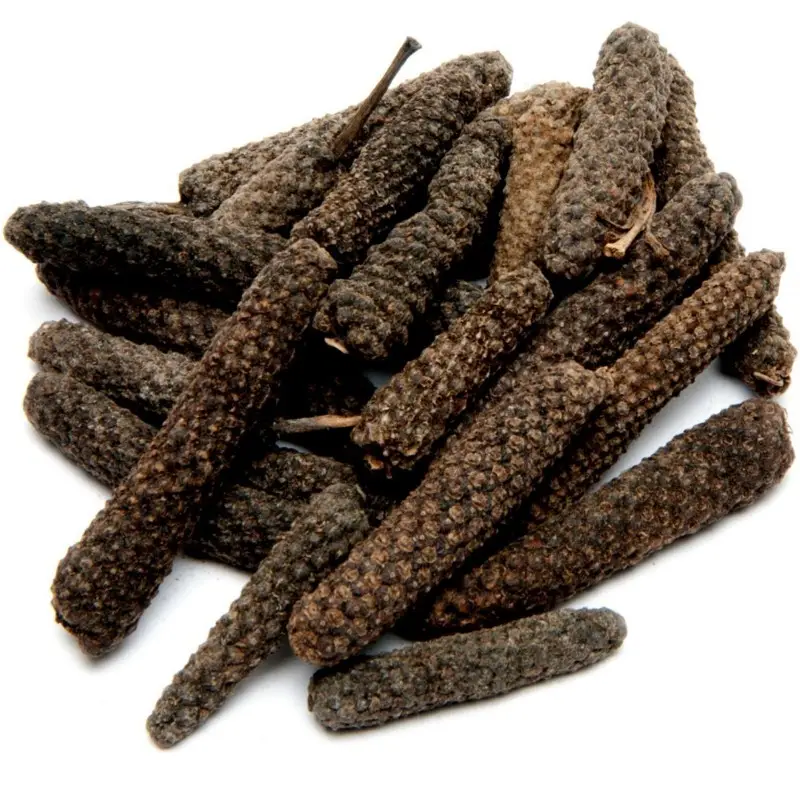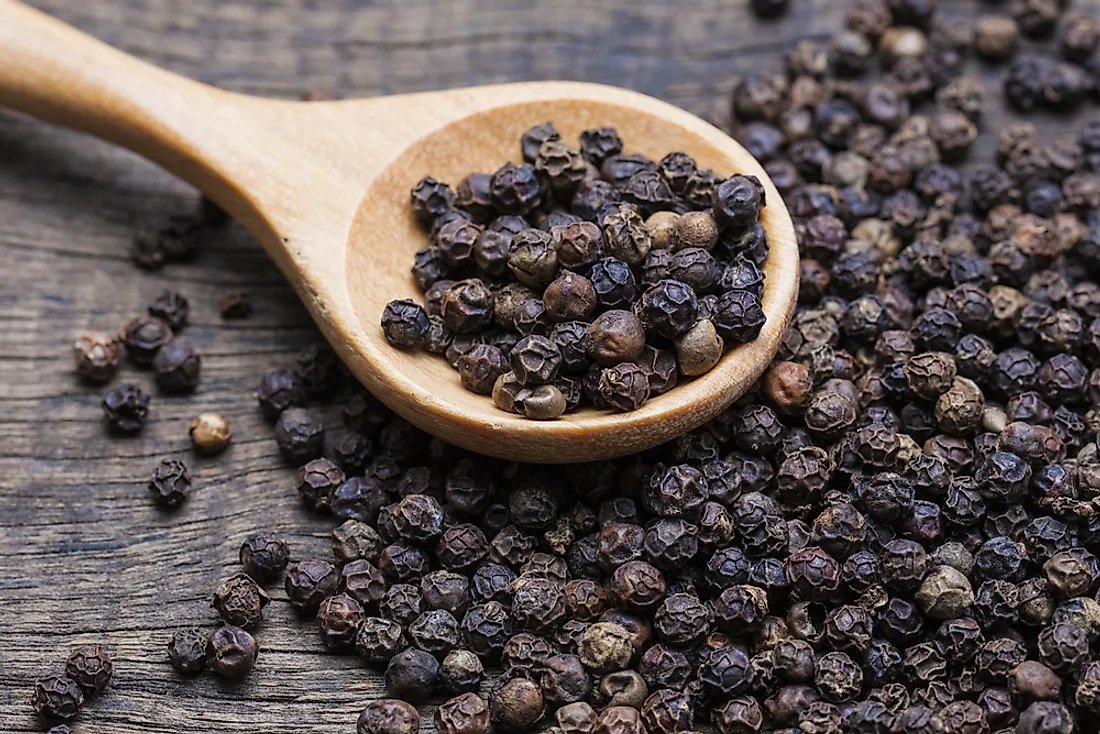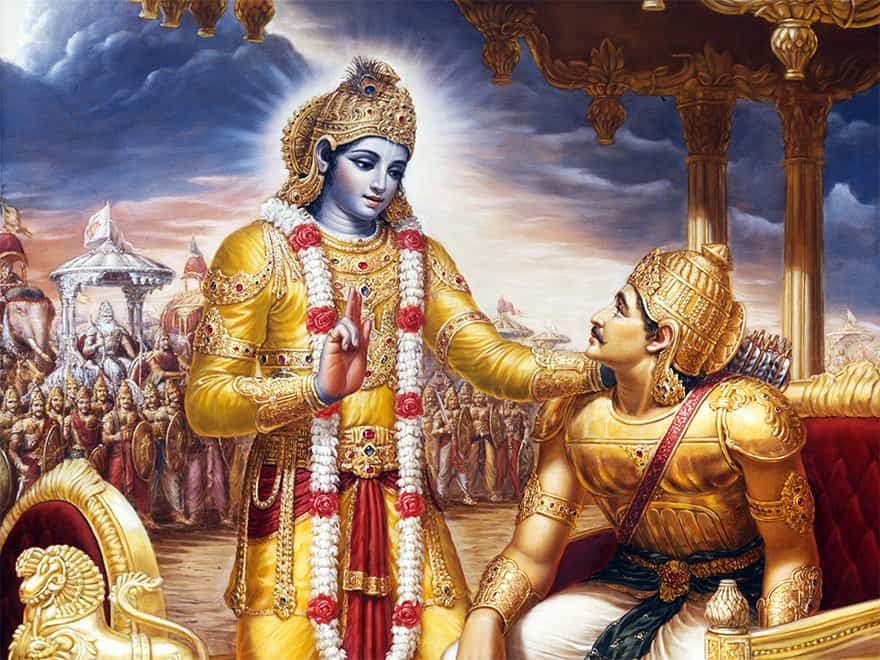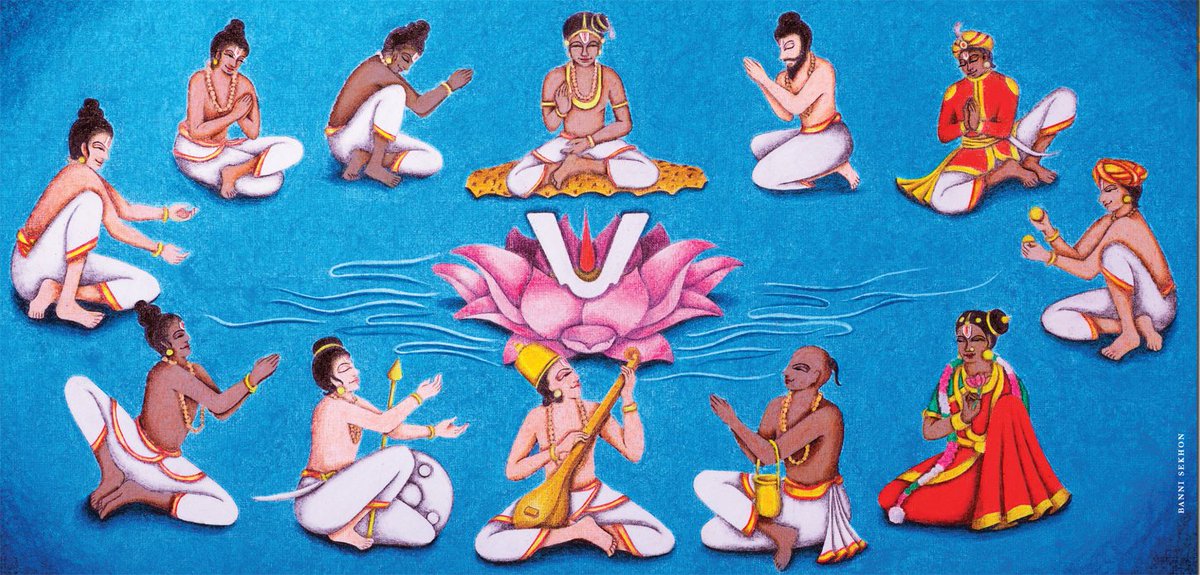
Namaste Saarade Devi Kasmirapura Vasini!
Tvaam Aham Praarthaye Nityam Vidyaa Daanam Ca Dehi Me
I bow down to Sarada Devi, who resides in Kashmir!
I pray to you, Devi, please bestow upon me the gift of knowledge!
#VasantaPanchami
Tvaam Aham Praarthaye Nityam Vidyaa Daanam Ca Dehi Me
I bow down to Sarada Devi, who resides in Kashmir!
I pray to you, Devi, please bestow upon me the gift of knowledge!
#VasantaPanchami

Muthuswami Dikshitar of the Carnatic Trinity, in his composition, Kalavati Kamalasana Yuvati, refers to Sarada Devi as
"Kasmira Vihara, Vara Sarada", once again establishing Sarada Devi worship in Kashmir.
"Kasmira Vihara, Vara Sarada", once again establishing Sarada Devi worship in Kashmir.
Kalhana in his famous Rajatarangini, venerates the presence of Sarada Devi in Kashmir, as a Hamsa (Swan), in the lake on top of the Bheda hill.
Among the Sakti Peethas, Sarada Devi temple in Kashmir is where the right hand of Devi is supposed to have fallen. 

Of all the references to Sarada Devi temple, I'd like to talk about the story from the Madhaviya Sankara Digvijayam.
The story of when the great Adi Sankara visited Kashmir.
Pic: Sankaracharya temple in Srinagar.
The story of when the great Adi Sankara visited Kashmir.
Pic: Sankaracharya temple in Srinagar.

Travelling across the length of breadth of Bharatavarsha, Sankara establishes Peethas (seats of learning).
He enters Kashmir, the land of Sarada Devi!
He enters Kashmir, the land of Sarada Devi!

There in the hallowed halls of the Sarada Devi temple is the Sarvajna Peetham, the seat, the throne of Omniscience, of all knowledge.
A throne! Can anyone walk in and occupy it?
No. It may be occupied only by one who is found worthy of it.
A throne! Can anyone walk in and occupy it?
No. It may be occupied only by one who is found worthy of it.

Sankara is told that the holy hall housing the Sarvajna Peetham can be entered through doorways in any of the 4 directions.
He is told that learned scholars have opened the doorways on the North, East and West sides
But the doorway on the South had remained shut.
He is told that learned scholars have opened the doorways on the North, East and West sides
But the doorway on the South had remained shut.
Coming from Kaladi, Sankara feels the natural impulse to knock on the Southern door.
But not so fast! Not so easy!
What does Sankara see at the door?
Pic: Kaladi Sankara temple
But not so fast! Not so easy!
What does Sankara see at the door?
Pic: Kaladi Sankara temple

At the door, Sankara sees venerable scholars, old and wise, wizened by age and wisdom, with millenia of knowledge amongst them.
But what do the scholars see?
But what do the scholars see?
The scholars see a young man, not even 30, his head shorn of hair, walking in the saffron robes of a monk.
"Hmph!", they grunt.
"What does he want with the Sarvajna Peetham?"
"Hmph!", they grunt.
"What does he want with the Sarvajna Peetham?"

Little did they know that Sankara had already won over Mandana Misra and his wife Ubhayabharati in debates not too long ago. 

But the challenge this time was different.
Sankara would have to debate not one Darsana (school of thought), but several of them, each convinced of the superiority of their Darsana.
And he would have to debate them all in succession.
Sankara would have to debate not one Darsana (school of thought), but several of them, each convinced of the superiority of their Darsana.
And he would have to debate them all in succession.
Not one to be deterred by an intellectual challenge, Sankara faced them head on!
With Ma Sarada's blessings, his victory was certain.
But there's a twist!
With Ma Sarada's blessings, his victory was certain.
But there's a twist!
All the scholars acknowledged Sankara's greatness and addressed him as the ocean of knowledge.
They invited him to ascend to the Sarvajna Peetham, the throne of Omniscience.
But... one challenger remained!
They invited him to ascend to the Sarvajna Peetham, the throne of Omniscience.
But... one challenger remained!
Wanting to test her beloved Sankara one more time, Sarada Devi challenged him Herself!
"Sankara! To ascend the Sarvajna Peetham, it is not sufficient for one to be just omniscient. He should be pure!
Are you?"
"Sankara! To ascend the Sarvajna Peetham, it is not sufficient for one to be just omniscient. He should be pure!
Are you?"
The details will take us into the story of King Amaruka. But let's keep it for another day.
Sankara replied, "Ma! With this body of mine, I have committed no sin!"
Sankara replied, "Ma! With this body of mine, I have committed no sin!"

Convinced with the answer, Sarada Devi appeared and by Herself, took Sankara to the Sarvajna Peetham, seating him on the Throne of Omniscience. 

I'd like to conclude this thread with a picture of the glorious Sarvajna Sarada Peetham, as it stands today.
Thank you for reading!
@threadreaderapp Please compile.
Thank you for reading!
@threadreaderapp Please compile.

• • •
Missing some Tweet in this thread? You can try to
force a refresh

















